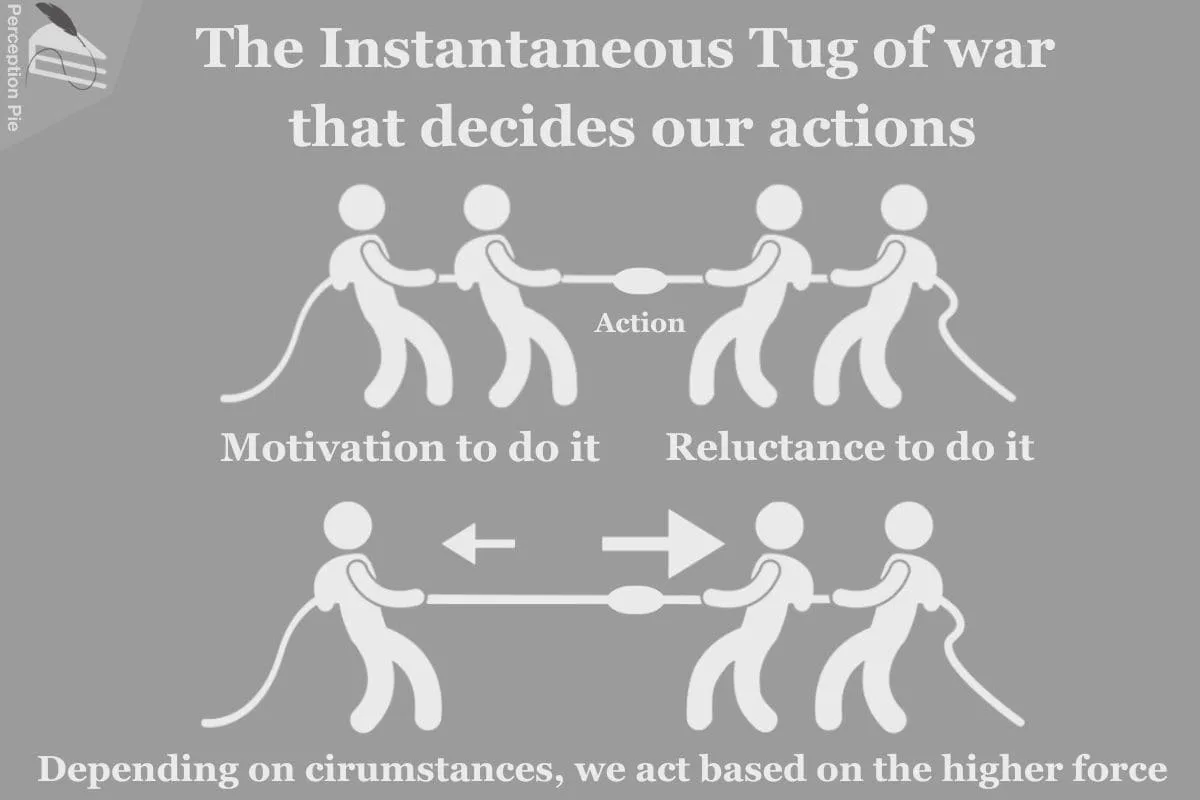
Trapped between “What will they think of me” and courtesy, how we deal with the dreaded last piece of food is comical at best, but well it’s not really our fault.
Turns out there’s a good amount of psychology behind these hesitations, leading us to try hide even the slightest intent if we do want it.
We try it all, from announcing fullness to looking anywhere except the plate. But why? Why do we feel conflicted about this seemingly simple decision?
You’ll not only learn the reasons after reading this piece, I assure you that you’ll start to enjoy these moments as much as I do!
How We Deal With the Last Piece of Food
From this research on entitlement and personal observation as a psychology enthusiast, following are some factors that help us in dealing with the last piece of food.
Culture
Dealing with the last piece of food may be linked with table manners and etiquettes, which are simply actions considered normal and polite. But aren’t these subjective?
Culture has a big impact on how we act. No one wants to stand out, so we try to act in ways that are considered normal in our culture. Some cultures have norms about what to do with the last piece of food, which makes it easier to deal with.
In Sweden, there seems to be a norm about not taking the last piece, and they even have a word for it: trivselbit. The word names that awkward moment at a group meal when there’s the last piece of food left.
Then we have Germany, which has words like andstandreste and andstandstuck that also relate to not eating the last piece of anything. Ironically, they are sometimes used to encourage others instead. “Don’t be andstandreste, take the last piece!”
At least China has a unique way of sorting the last piece. In China, when you eat at someone’s home, you always leave the last portion on your plate. If you don’t, it means that the food wasn’t filling enough, which is rude to the host. No last piece, no issue, right?
You’re probably thinking “but that’s a waste!” and you’re right. This norm has seen a decline since industrialization and was possibly a by-product of early China’s extreme poverty. As a result, it’s only adopted in select places of China right now.
[wpdiscuz-feedback id=”uy0f9s10oi” question=”Let us know in this comment!” opened=”0″]These examples show us that if there are any cultural norms related to the last piece, then it becomes easy to sort. Does your culture have norms related to the last piece of food?[/wpdiscuz-feedback]Relationship
Doesn’t our behaviour change with people, depending on our type of relationship with them. Similarly, the people we eat with have a big impact on how we act.
When we are dining with friends or family, we are freer to express ourselves without worries. We try to have a good time instead of focusing on making as few mistakes as possible.
Friends and family make us less hesitant, which opens up many choices, like being frank about it, dividing the last piece, or even playing a little game to see who gets it for fun!
Eating in a more formal setting, such meetings are usually not about food but about making more connections. This makes us act carefully to avoid being judged badly for any reason.
In this case, it’s probably best to let someone else take the last piece. But if no one’s taking it, politely asking if anyone wants it and then taking it is better than letting the food go to waste.
It should be mentioned that taking the last piece without asking would be a terrible idea, as some may not care while others may find it insulting.
You may argue, “I don’t care,” but these things definitely matter in people’s perception of you, which can slowly build up negatively as such things accumulate.
Actions that Increase Entitlement
When equal division is not possible, we divide things based on entitlement. To an extent, same can be applied here. “You know what, he’s the birthday boy let’s give it to him”.
People would feel less entitlement compared to the person who cooked the meal, paid for it, visiting after a long time or is celebrating a special occasion like birthday etc. This makes sorting the piece easy as they will be urged to take it.
Of-course, they can refuse and ask others to take it instead but at the very least, it creates a starting point instead of waiting for things to turn awkward.
We don’t feel bad if the person who’s entitled more to something receives it, this phenomenon was studied in a paper called “Diffusion of Entitlement”, more about this at the end.
Why Do We Feel Hesitant to Take the Last Piece of Food?
From a psychological view, whether we do something or not, it depends on a tug of war in our mind between two opposing forces. The first force wants us to do it while the other one wants to stop us, this can be applied to this issue too.
There’s an image below that illustrates this tug of war in the context of dealing with the last piece of food.

Depending on the factors mentioned above, we act according to whichever force is higher. It’s fascinating how our minds can process all this so quickly and choose the best possible action.
Fear of Judgement
There’s also another factor in our hesitance. Imagine that you’re dining with 4 people in a formal setting that can either be professional people or people you don’t know too well.
Let’s say you want to take the last piece but don’t. Why? Because of fear of judgment, the fear of being judged negatively. We don’t want to give any impression that may be seen negative, especially in a formal setting.
Some could argue that even if you asked politely for the last piece, you might still be judged negatively. We just have to accept that not all our actions will be judged positively and worrying about excessive judgement won’t take us anywhere.
It also depends on what kind of person you are. Some people don’t care about this and act freely in formal settings, even if it makes them look bad.
On the other hand, there are people who aim to be perfectionists and act cautiously, hoping this ends ASAP and smoothly from their side.
The fear of being judged negatively is stronger when we are at work or with people we don’t know well. We may not even feel it when we are with close friends and family.
In the end, a balance in everything is key. Although the little things at the table matter, you are the perfect person to pick the most appropriate action depending on the circumstances.
Next section talks about the study used in this article, it’s interesting but you can jump to conclusion.
Study: Diffusion of Entitlement
The belief that one inherently deserves something for any reason is entitlement. This study suggests that when something cannot be divided equally, people feel less entitled to take it. This is called “Diffusion of Entitlement” and is based on a research linked at the end.
Study’s Key Points
For easier understanding, let’s suppose you are at a party, you and the rest LOVE appetizers. The hosts finally present the delicious appetizers but there is a shortage of them compared to the number of guests.
Considering the above scenario, even when the shortage makes the appetizers more special as not many will be able to taste them, we see the opposite in the study’s key observations:
- The shortage of appetizers makes the guests reluctant to take it for themselves when equal division is impossible, this delays the consumption of any appetizers.
- When everyone is equally entitled to appetizers, they would face disapproval from other guests if anyone takes the limited appetizers.
- If people believed someone had more entitlement than them (like their birthday), they would show less disapproval if they took the limited appetizers.
For further study on this you may refer to Effron, Daniel & Miller, Dale. Diffusion of entitlement: An inhibitory effect of scarcity on consumption. Journal of Experimental Social Psychology.
Conclusion
This post aimed to go slightly deeper on a simple issue of the last piece of food, it talked about some factors that are used in dealing with it. We also touched on this issue happens from lens of Psychology.
Psychology is a fascinating subject that can contribute to better mental well-being, not convinced? Check out common uses of psychology in daily life or some benefits of psychology.
Did you gain any new perspective of looking at this issue? Any comments regarding any part of this article are welcome!
